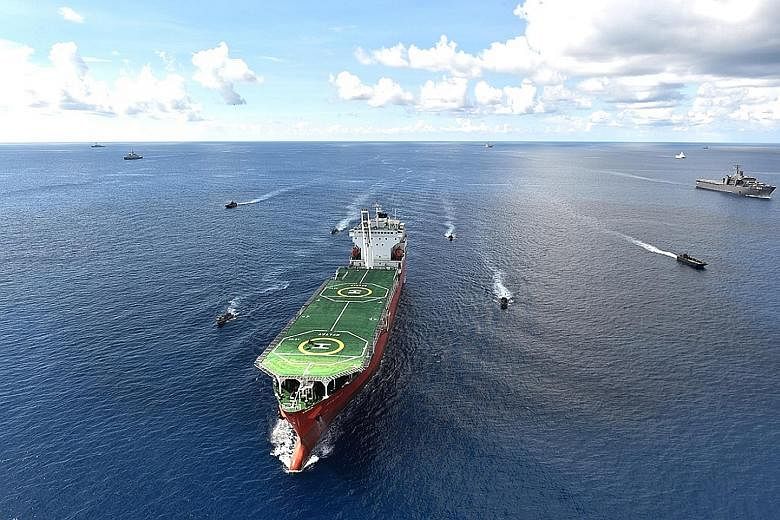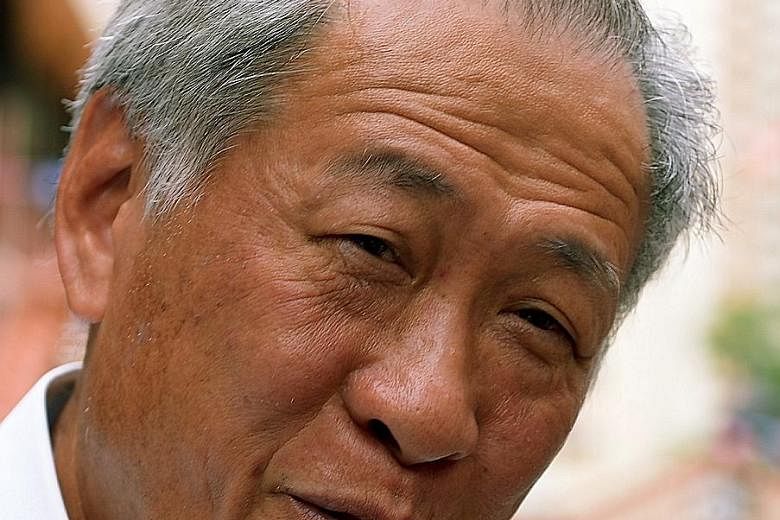Singapore's defence and foreign policy as an independent, sovereign nation will continue to be based on positioning itself in the best possible position to survive and progress, whatever the calculations or policies of other countries may be, Defence Minister Ng Eng Hen told Parliament yesterday.
"Singapore must dictate its policy based on its own interests," he said, even as it watches what others do.
"Singapore is a small country and we will work with like-minded partners who pursue peace and stability in our region."
This is why it pushes for joint cooperation and exercises with other countries, he added. "We seek to have as many friends as possible and we encourage countries to use our facilities - whether it's Changi Naval Base or the air bases."
He was responding to a question from Non-Constituency MP Dennis Tan, who had asked how Singapore would mitigate the costs and risks that would arise should there be a major American departure from its current strategy of a rebalance to the Asia-Pacific. Mr Tan asked what the Government's plans were if the United States' alliances with its existing allies were to weaken, or if - in reverse - strengthen.
His question comes as observers suggest American policy might shift following President-elect Donald Trump taking office in January. The US under the Obama administration spent considerable effort strengthening ties with Asia as part of a strategy to rebalance its military and diplomatic interests towards the region.
Dr Ng declined to address the "theoretical" scenarios Mr Tan posed, but said: "Our starting point is whatever the calculations of other countries, whatever their foreign policy, we start from this important fundamental - we seek to make sure that Singapore benefits the most. And our foreign policy or defence policy is predicated on making sure that we have positioned ourselves in the best possible position to survive and to compete."
He said Singapore seeks to work with partners on common objectives, noting this was why it joined the Five-Power Defence Arrangements in 1971 with Britain, Australia, New Zealand and Malaysia, requiring all five to consult in an external attack on Malaysia and Singapore.
Together with other Asean countries, Singapore has also worked to build a security architecture that is inclusive and based on the rule of law, where peaceful settlements of disputes, dialogue, cooperation and non-provocation are the norm.
This led to the setting up of the Asean Defence Ministers' Meeting (ADMM)-Plus in 2010, which includes China, India, Japan, South Korea, Australia and New Zealand, as well as the US and Russia, he said.
Ships and submarines from countries including the US, China, India and Japan often stop and use facilities at Changi Naval Base, he added.
US ships and planes have become more frequent users after a 1990 memorandum of understanding (MOU) between the two countries, signed by then-Prime Minister Lee Kuan Yew and then-US Vice-President Dan Quayle, which "facilitated the US' presence in this region and provided the security umbrella under which emerging economies in Asia thrived", Dr Ng noted.
This MOU was updated by the Strategic Framework Agreement signed by PM Lee Hsien Loong and then-US President George W. Bush in 2005. Last year, both countries also signed an enhanced Defence Cooperation Agreement.
"As a matter of policy, Singapore will continue to partner like-minded countries to pursue peace and stability for our region," said Dr Ng.



